Shop at These Zero Waste Stores in India to Cut Your Plastic Footprint.
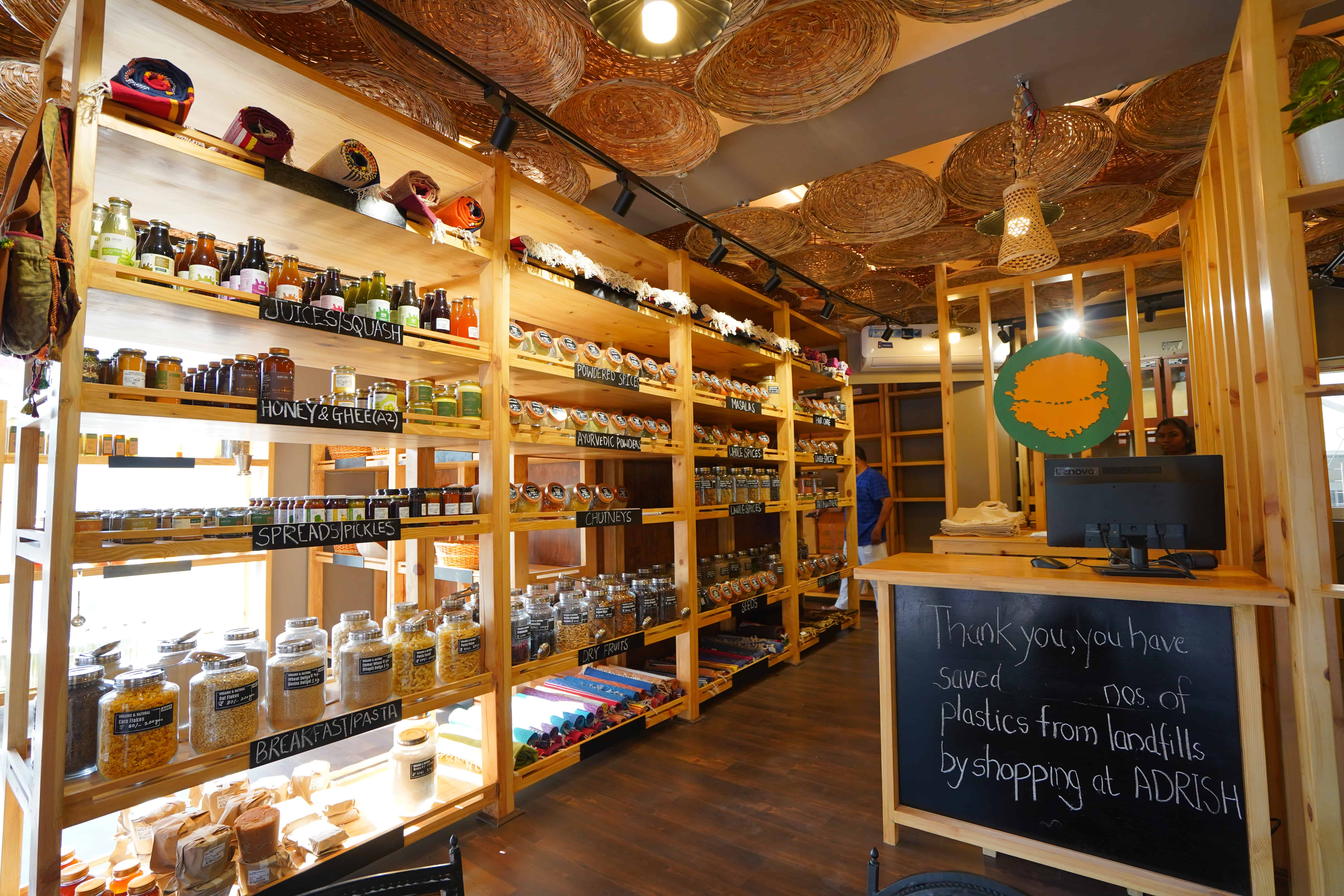
Zero waste stores in India – from Dehradun to Chennai – can help us ditch single-use plastic in everyday groceries. At a time of lockdowns and social distancing, many online zero waste stores have popped up to offer plastic-free deliveries too!
Guest post by Aishwarya Muralidhar (with inputs)
My zero waste journey started after reading the book Minimalism: Live a Meaningful Life by Ryan Nicodemus and Joshua Fields Millburn. Although the book isn’t exactly about the zero waste lifestyle, it urged me to rethink my relationship with the things I bought. Soon after, I started working for a zero waste brand and began to understand the life cycle of the things we buy.
However, as someone who lives on the outskirts of Bangalore, I don’t have access to many of the zero waste options that the city has to offer. Reusing what I have, refusing unnecessary plastic and mindful shopping have been my go-to practices.
Zero waste stores in India: The concept
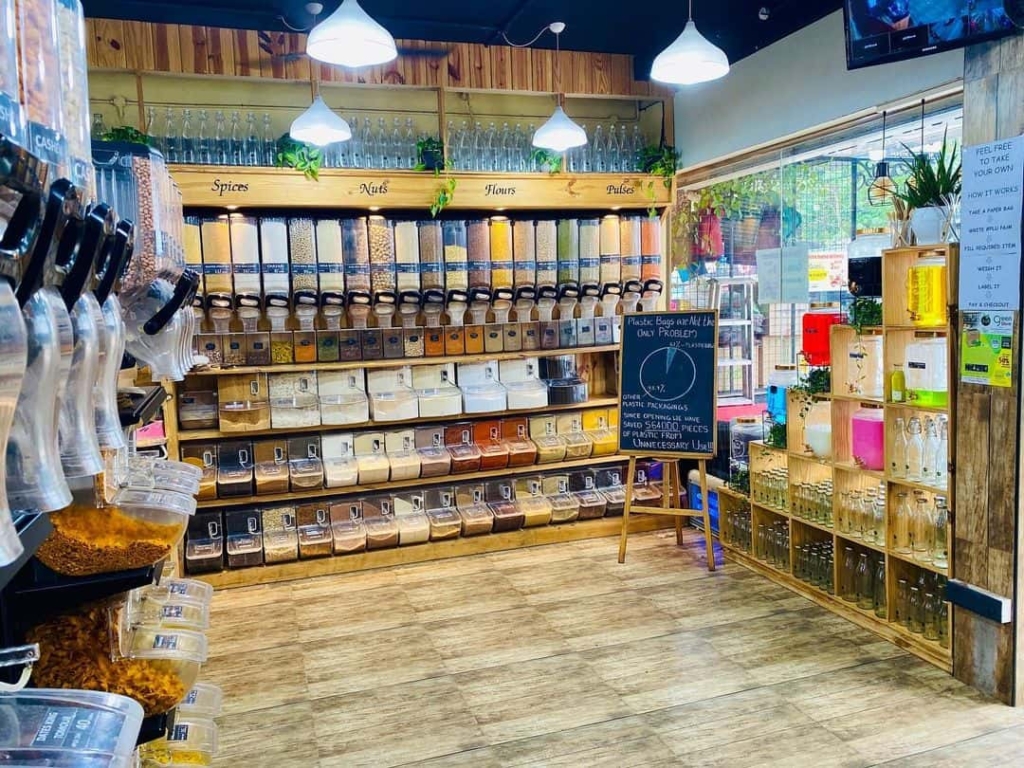
The concept of a zero waste lifestyle isn’t new in India. Many of us might remember how our parents or grandparents frequented local kirana stores with steel dabbas in tow. The reusable dabbas eliminated the need for packaging, and we’d have flours and spices for weeks!
But things are a little different now.
Most of us frequent supermarkets or just buy essentials online. It’s convenient, saves us a bunch of time and often gives us a good deal – but it comes at a huge cost to the environment.
With many kirana stores now stocking groceries and grains in plastic too, ‘zero waste stores’ – stores that receive, stock and sell all their supplies without any plastic packaging – have sprung up to fill the gap.
Organic groceries, reusable cloth diapers and nappies, herbs and spices from tribal cooperatives, cleaning products, farm-to-table produce, kitchen essentials, healthy snacks – it’s now possible to buy all this and more without single-use plastic!
Also read: How Rejection Helped Fuel My Journey Towards Conscious Living
- Zero waste stores in India: The concept
- Zero waste stores by city
- Tieedi Zero Waste Store, Darjeeling
- Assav Organics, Dehradun
- Adrish Zero Waste, Delhi
- Green Chokrees, Goa
- Eco Posro, Goa
- Online zero waste stores in India
- Some zero waste products in India worth trying
- Other tips to shop low waste
- Inspiring zero waste accounts on Instagram
- Your questions about going zero waste in India
- Which are your favorite zero waste stores in India?
Zero waste stores by city
The zero waste movement is slowly gaining momentum in India. A slew of bulk shops, refill stores, zero waste essential shops and sustainable living brands have popped up, both online and as physical retail spaces.

Bangalore
Green Mantra, Bangalore
“We cut the plastic packaging at the source level to prevent plastic from going to the landfill.”
It’s been exciting to witness the evolution of zero waste stores in Bangalore, where Green Mantra, located in Marathahalli, carries package-free, preservatives-free groceries, and offers home-refills of spices, baked goods and even dosa batter! Their home refill model makes going zero waste that much easier.
Founded by Debayani, Prachee and Shikha, their collective love for the environment pushed them to start Green Mantra and spread the message of a simple, affordable, accessible, eco-friendly lifestyle.
Adrish Zero Waste, Bangalore
The newest of Adrish outlets, this store has everything you need to go zero waste with your purchases. Be sure to take your reusable cloth bags / containers to stock up on groceries, plastic free!
Chennai
EcoIndian Zero Waste Store, Chennai
“It was difficult to convince our customers to carry their own bags and containers in the beginning. But we’ve built a small positive community who care about nature over the past few years.”
Founded by childhood friends Prem Antony and Pradeep Kumar, EcoIndian started out as an organic grocery store, but pivoted to a zero waste model after the plastic ban in Chennai. They stock everything from regular groceries and pasta to dips and snacks in reusable glass bottles or compostable paper packaging – inspiring many in the city to shop more consciously.
Darjeeling
Tieedi Zero Waste Store, Darjeeling
“Our products are either sourced locally from our local artists, craftspeople, farmers or from people with similar sustainable goals from outside our region.”
Tieedi has sown the seeds of a zero waste movement in Darjeeling – with two zero waste stores, and a collaboration with several cafes to set up zero waste corners!
Founded by Utsow Pradhan, Tieedi began with offering waste management solutions to revive the air, water and soil in and around Darjeeling. After launching home and community composting solutions, Tieedi set out to tackle the dry waste crisis. Over the years, many volunteers joined to promote a lifestyle where no waste is generated at all – and Tieedi forest has now grown into a small community of people who stay and work there. They also work actively on permaculture projects and naturally cooling dwellings.
Dehradun
Assav Organics, Dehradun
“As soldiers, we’ve defended the motherland. Now we need to defend Mother Earth by creating a sustainable world.”
Started by Lt Col Arvind Rawat (retd) and co, Assav Organics has ushered in a new phase of the conscious consumption movement in Dehradun. Col Arvind’s journey as an organic farmer gradually led him to set up the first zero waste store in Dehradun, in Nehru Colony. He sources certified organic grains, pulses, spices, herbs, oils and other essentials from farms across the country in traditional ringal (hill bamboo) baskets – available for sale in paper bags or your own containers.
Also read: Sustainable Living Ideas to Embrace in the New Normal
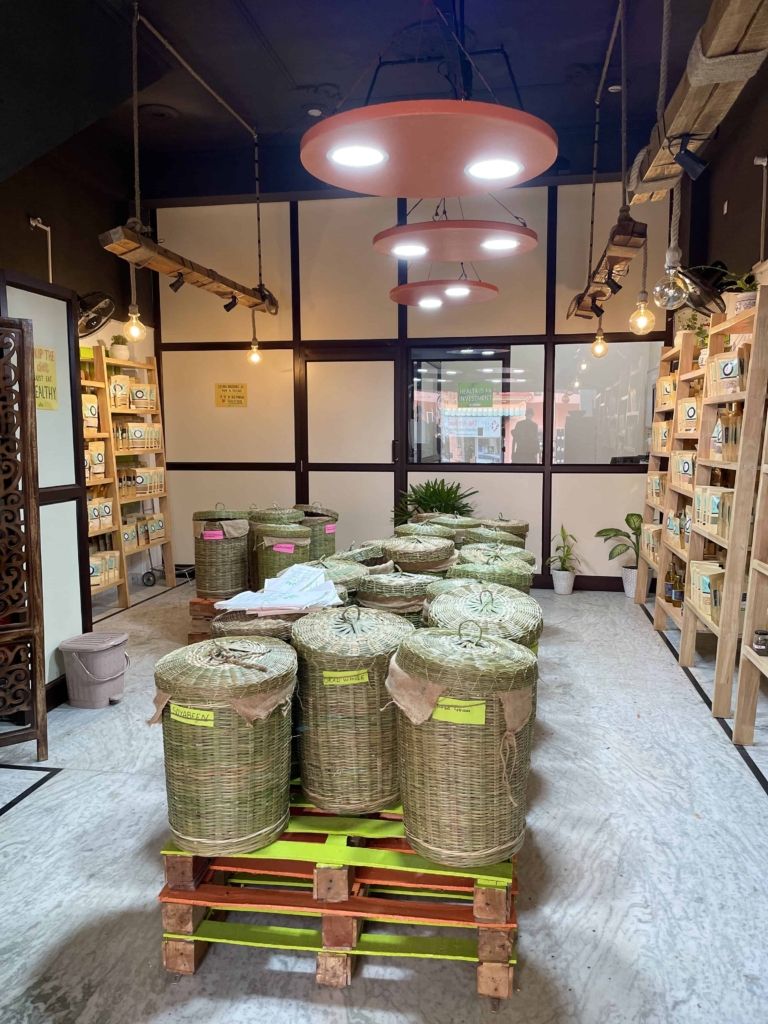
Delhi
Adrish Zero Waste, Delhi
“We dream of a day when plastic-free items won’t be considered an alternative but the regular way to shop.”
The search for plastic-free, eco-friendly, organic products took friends Akshay Agarwal and Gajendra Choudhary to remote parts of India – and led to India’s first zero waste grocery store chain. Adrish became the first zero waste store in Delhi, offering groceries and produce sourced directly from 9000+ farmers!
They also stock toys, home decor, cleaning products and skincare essentials – all packed in plastic-free, reusable and compostable packaging. Going zero waste at home couldn’t be easier.
Goa
Green Chokrees, Goa
“We first started living in Goa nearly 15 years back, when the quaint village of Siolim had only 1 ATM machine and everyone shopped at the old-fashioned, loose-grain store near the church, where things were packed for you, either in newspaper or brown paper bags.“
Goa has been leading India’s vegan movement, so it’s no surprise that an eco-friendly, zero-waste lifestyle is sought after here too. Green Chokrees is the brainchild of chokrees Jasmin Jagada and Nivedita Magar, who source mostly certified organic groceries from across India – and retail them in paper bags, glass jars and your own containers from a cozy space in a charming Goan-Portuguese home.
Besides everyday groceries and essentials, look out for products handcrafted by local entrepreneurs – kombucha, vegan cheeses, nut butters and more!
Eco Posro, Goa
Started by two Goan chokraas Jonah and Elridge, Eco Posro is the first zero waste store in Goa (“posro” means small local shop in Konkani). Inspired into action by the plastic waste overtaking Goa’s pristine beauty, the two friends set out to offer locally / regionally sourced alternatives to daily essentials like plastic bottles, groceries, spices, cooking oils, cleaning agents and fresh produce.
Bringing your own containers is encouraged, though reusable glass jars, paper bags and cloth bags are available.

Gurgaon
For Earth’s Sake, Gurgaon
“Indians are slowly getting used to the switch to a sustainable lifestyle and every time a consumer decides to change their habits, it feels like a personal victory!”
Founded by brother-sister duo Vidur Mayor and Dr. Vidushi Mayor, their zero waste journey started with a trip to Kashmir. They were taken aback when they found mounds of waste strewn about this ‘Paradise on Earth’. They initiated a cleanup, but the experience lingered on in their minds, compelling them to find a solution for our country’s gigantic waste problem. Thus was born For Earth’s Sake, the first zero waste store in Gurgaon!
Their bestsellers include bamboo cutlery sets, bamboo fibre cups (to replace disposable cups) and eco-friendly personal hygiene products. You can also pop into their meat-free cafe, which offers three different menus based on the season. The cafe’s supply chain is zero single-use plastic too!
Also read: I Love Spiti: A Campaign to Save Spiti Valley from Single Use Plastic
Hyderabad
Zero Waste Eco-Store, Hyderabad
Zero Waste Eco-Store, the first zero waste store in Hyderabad is located in Secunderabad, with a treasure trove of 150 plastic-free products. Expect to find daily kitchen essentials (dried fruits, cold-pressed cooking oils and organic groceries), handmade soaps and shampoo powders, and even traditional coffee and tea. Carry your own bags or buy their cloth potlis!
Adrish Zero Waste Store, Hyderabad
Shocked at the amount of plastic created by our daily lifestyle, the founders of Adrish pledged to make zero waste shopping easier across India – and have gradually expanded to several cities, including Hyderabad.
Also read: Minimalism – and a Rush to Fill the Void
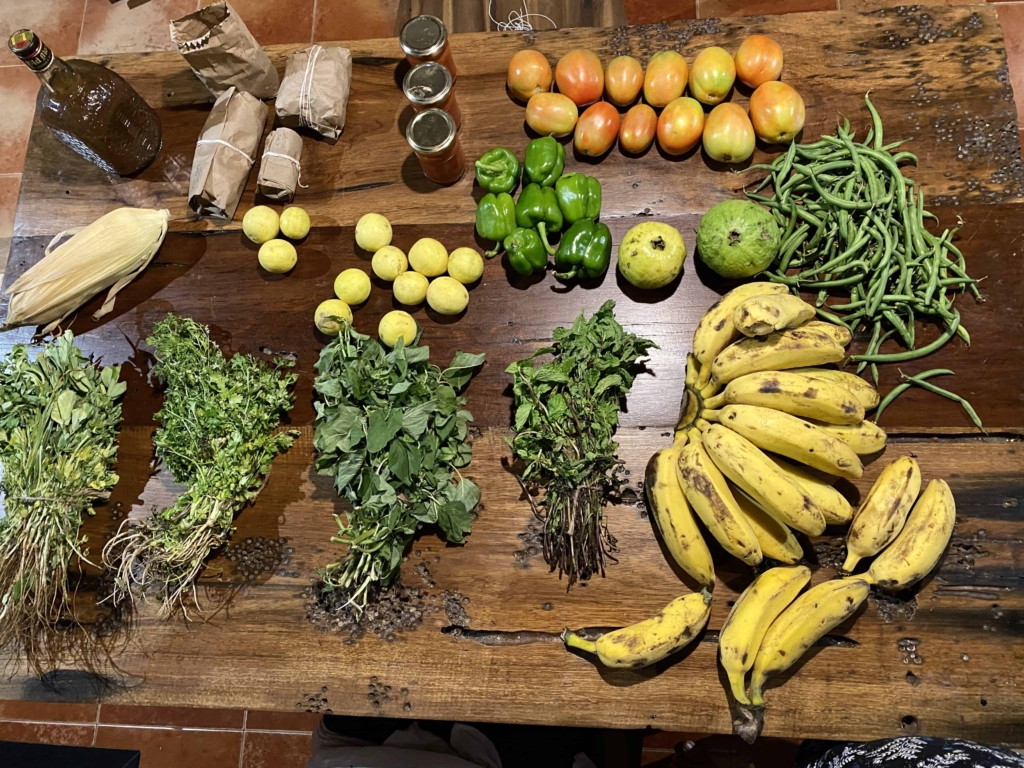
Jaipur
Speak Earth, Jaipur
“When we were younger, we shopped at local parchun shops, where everything from oil to flour and pulses were picked up in steel dabbas. The idea of a modern zero waste store occurred to us while shopping at a large retail store where everything was packaged in plastic.”
Speak Earth is a pioneer of the zero waste movement in Jaipur, and works on the BYOC (Bring Your Own Container) model – inspired by the local bulk stores and steel dabbas of yore!
Founders and friends, Ankita Sharma and Sourabh Sharma, did extensive research (for nearly two years!) before opening up shop just two months ago. Their huge variety of offerings include daily groceries, cleaning essentials, beauty products and cooking ware. The store also houses a cafe with fresh cold-pressed juices and organic smoothies.
Through their zero waste store and cafe, they aim to spread the word about the BYOC concept and educate Jaipur’s residents about the harmful effects of plastic packaging and chemical preservatives.
Kochi
7 to 9 Green Store, Kochi
“We’ve had an outstanding show of support and are currently working on a franchise model. I’m looking forward to supporting others who want to start their own zero waste stores.“
After returning home from an inspiring trip to London in 2016, founder Bittu John took it upon himself to convert his family-owned grocery store into the first zero waste store in Kochi and all of Kerala! It took him nearly 2 years to figure out the logistics – but the store now enables conscious shopping with plastic-free groceries, organic cleaning products and more.
With all the wisdom gleaned on his own journey, Bittu now hopes to support others who want to be at the forefront of Kochi’s plastic free shopping revolution – both shoppers and potential store owners!
Kolkata
Kolkata Zero Waste Bazaar, Kolkata
“Mindless consumption is the root cause of all our problems – be it in our lives or on our planet.”
A chance discussion with a friend, on the garbage lining the streets of India, is what got Lata Bhatia – the founder of Kolkata Zero Waste Bazaar, West Bengal and Eastern India’s first zero waste store – thinking about sustainability. A special needs teacher by profession, Lata found her calling towards building a more sustainable world in her late 50s! But once she started unpacking issues of waste segregation, composting, single-use plastic, etc., there was no going back.
At Kolkata Zero Waste Bazaar, located in New Alipore, you can find locally-sourced organic skincare and beauty products, stationery items, and spices and other groceries. Their most popular products include organic cleansing bars, body butters, tooth powders, non-toxic detergents and cleaners, and terracotta kitchenware from Mitti Cool. Besides being a brick-and-mortar store, it is also a sustainability hub and a community space. Prior to the pandemic, they hosted talks, meetups and debates showcasing the stories of local social impact entrepreneurs and mental health support groups discussing topics like climate-anxiety.
Mumbai
Vnya, Mumbai
“Our organic journey started with sourcing alternatives for our four legged furry boy Leo, and grew into a passion for making clean eating accessible for all.”
After spending most of her professional life in advertising, promoting products she didn’t believe in, Supriya founded Vnya, a zero-waste organic grocery store based in Juhu. Expect to find groceries curated from across the country – Pahadi naurangi dal, buransh (rhododendron) squash, hemp oil and more!
Vnya not only also encourages people to carry their own containers for refills, but also to drop off any dry waste every Monday at their store. With the help of local waste collectors, they segregate that waste and recycle it, hence keeping waste away from landfills and empowering local waste collectors. They actively support segregation and composting – at home, societies, events and shoots.
Adrish Zero Waste, Mumbai
Yes, Adrish again! The quaint Adrish outlet in Andheri West is the first zero waste store in Mumbai – stocking farm-to-shelf groceries and essentials without single-use plastic packaging. Shipping options are available without plastic too.
Online zero waste stores in India
While there are many niche zero waste brands out there, online zero waste stores in India tend to curate and aggregate these as a one-stop conscious living solution.

ONEarth
“Most people want to live more sustainably, but don’t do so because of a lack of options.“
Nitika Sonkhiya quit her corporate career to start a truly unique zero waste brand that makes products largely from three ingredients: bamboo, coconut coir and coconut shells!
ONEarth is a one-of-a-kind artisan-first brand and online zero waste store that offers a range of personal care products, kitchen essentials, yoga accessories, and home and office supplies. They also carry beautifully handcrafted handbags and purses made from jute and kauna grass.
Conscience Nook
“Our aim is to make plastic-free living the norm. To advocate that sustainable living is for everyone.”
Founded by college friends Shreyas Narain and Vanya Gangwar amidst the pandemic in 2020, Conscience Nook aims to make the switch to a plastic free life fun and easy. Their mission is to deliver sustainable, eco-friendly, durable products to your home, whichever nook of the country you might be in.
When bringing a new product on board, they make sure that the product is ethically sourced, sustainable and 100% plastic free. They go a few steps further by supporting local businesses and ensuring that their vendors align with their eco-friendly vision as well as promise transparency in how they they operate.
Conscience Nook’s wide variety of zero waste options come creatively packed in compostable kraft and cardboard material. Expect to find an expansive range of personal care products, home and kitchen ware, and sustainable stationery.
Also read: Can We Stay Safe Yet Reduce Single Use Plastic During the Pandemic?
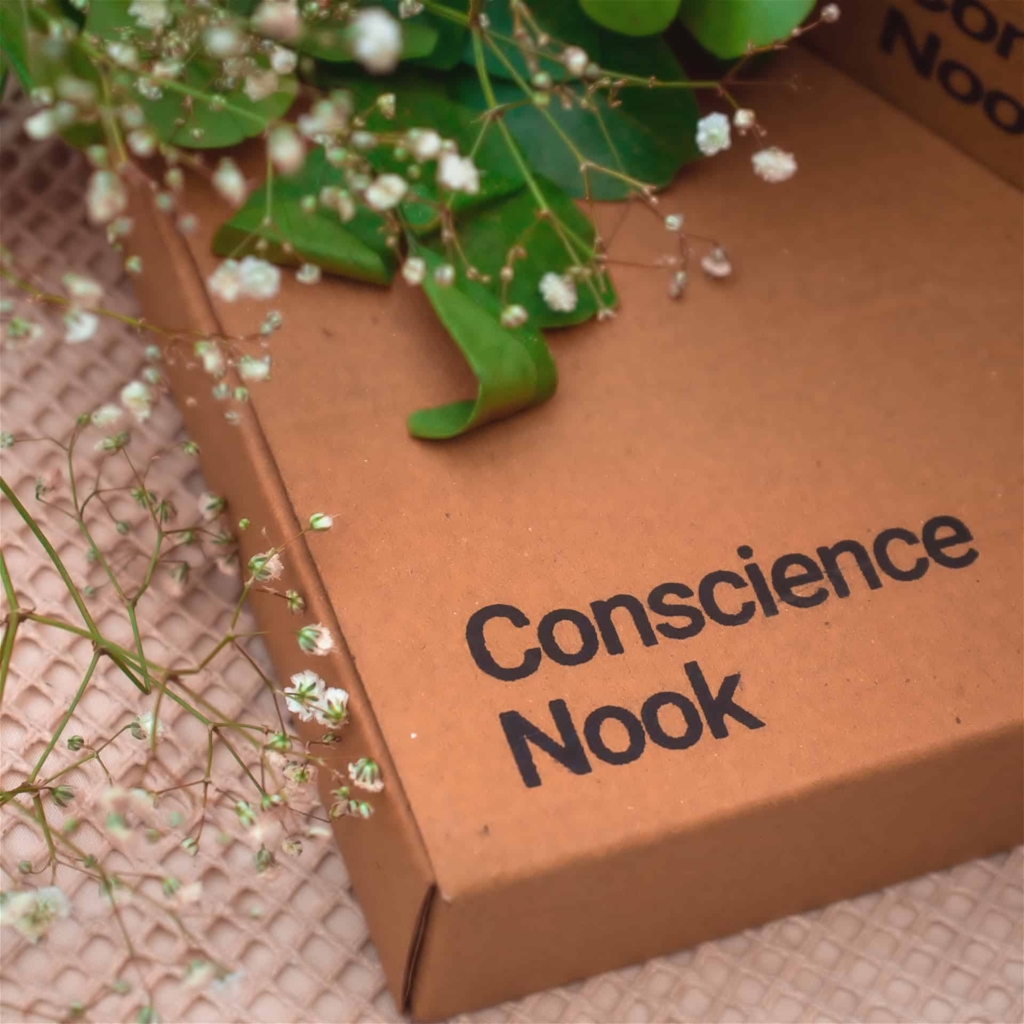
Bare Necessities
“One of the many joys of transitioning to a low waste lifestyle is the simplicity and sense of mindfulness it brings to all that we do.”
Sahar Mansoor, the founder of Bare Necessities, thinks of herself as an accidental entrepreneur. Overwhelmed by our country’s garbage problem, she felt compelled to do something for the environment – and the health and social justice issues associated with it.
Like other zero waste stores, Bare Necessities offers everything from upcycled bags to sustainable body care and home essentials (check out their cool collapsible steel tumbler!). But it goes many steps further.
Bare Necessities’ starter kits are designed to make travel, homecare and dental needs more sustainable. It offers a program to return and recycle glass jars, as well as refill them physically in Bangalore. And it offers several educational programs and corporate workshops to make a low impact lifestyle more accessible.
Brown Living
“For us, real impact is when consumers use sustainable products – not just buy them.”
Chaitsi Ahuja embarked on her zero waste journey after feeling overwhelmed by the plastic crisis. That eventually led her to founding The Brown Living – an online marketplace that hopes to convince millennials and Gen Z to become conscious consumers without compromising convenience.
The Brown Living team has developed a detailed framework to assess new products, giving equal attention to the source, method, packaging, life & beyond, and aesthetic.
From bamboo-cotton earbuds and upcycled scrunchies to vegan travel gear and sustainable gift boxes, The Brown Living offers a wide variety of zero waste options for everyday needs. They have a strict plastic free shipping policy and their shipping boxes are upcycled or reused.
Also read: What I Learnt Volunteering on a Remote Island in Cuba
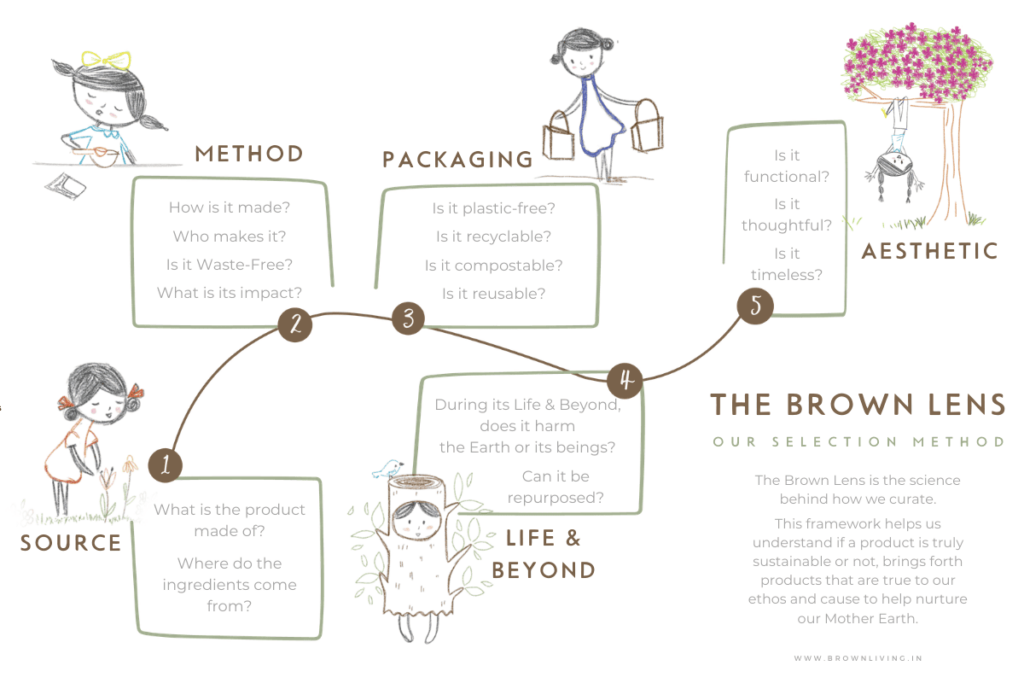
Going Zero
“We are building a strong community who can put the planet first when it comes to business. We personally test all products that we bring onboard and also conduct random visits to manufacturing sites to ensure they’re complying with our plastic free policy.“
Social science teacher and environmentalist Sagar Singh co-founded Going Zero in 2021, with blockchain marketing professional, Naman Sharma. Their team of environmentally conscious millennials work remotely across the country, rallying to reduce resource wastage.
With innovative products like edible cutlery and coconut shell jugs, Going Zero offers a fun collection of zero waste alternatives – many of which are vegan, cruelty-free and chemical-free.
Ullisu Store
“The biggest challenge of being a zero waste business? Balancing the awareness that we should buy only what we need while still being a business that needs to sell.”
When Mrudula Joshi began sharing her zero waste journey on Instagram, she realized that many of her followers relied on her recommendations. That eventually inspired her to start Ullisu Store – an online marketplace where she curates personally vetted zero waste alternatives, and encourages buyers to appreciate the little imperfections in natural products.
Look for reusable wax strips, gardening essentials, plastic-free rakhis, a travel-friendly tea diffuser and other self-care and home care products that can collectively reduce our impact on the planet.
Some zero waste products in India worth trying
From kitchen products to zero waste beauty, homegrown Indian brands are changing the way we shop – with plastic-free, cruelty-free, vegan and conscious alternatives.
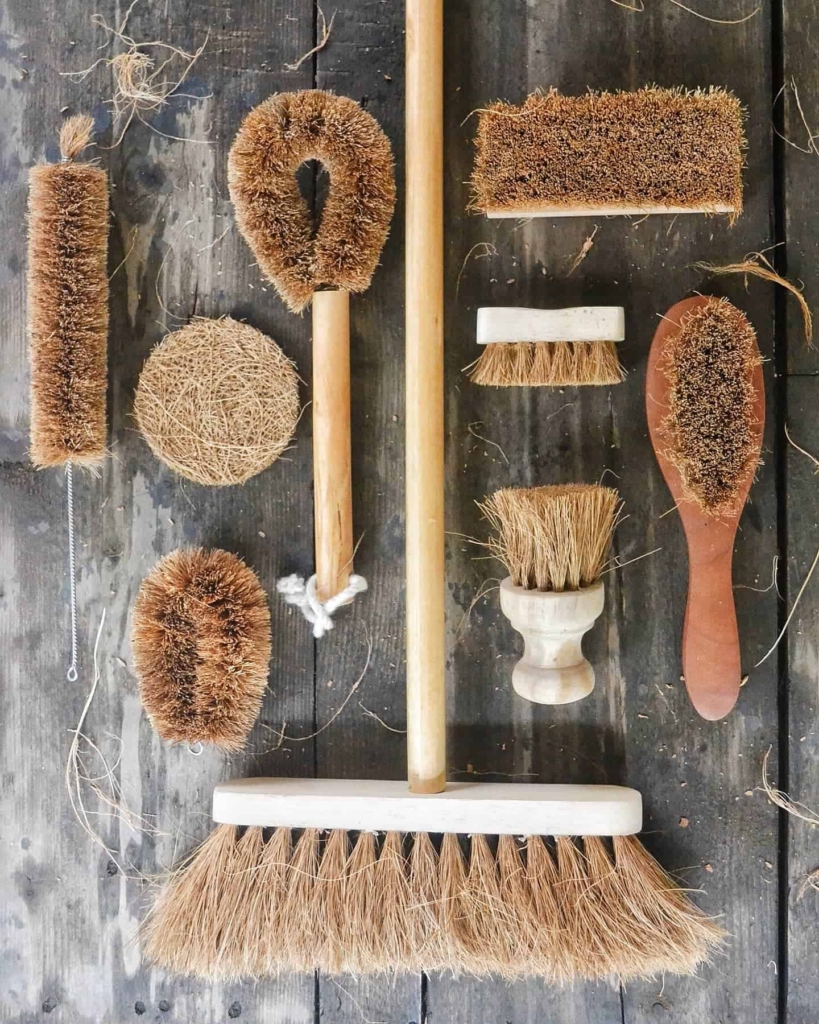
Zero waste essentials
Menstrual cups
Tampons, pads and panty liners, along with their packaging and individual wrapping, generate more than 200,000 tonnes of waste per year. With each female using an average of eight pads per menstrual cycle, more than 12 billion sanitary pads are disposed off every year in India. A menstrual cup is the perfect green alternative.
Check out Boondh, Sirona, The Womans Company or Shecup to find the right one for you.
Bumpadum
Have a little one at home? Bumpadum offers reusable cloth diapers and nappies in many sizes, so you can go zero waste easily.
Zero waste cleaning products
Almitra Sustainables
Have you ever looked at your living space and felt guilty about all the plastic lining the shelves? Almitra Sustainables makes it easy to switch to plastic-free daily essentials, including innovative zero waste alternatives to common household items like coconut fibre sweeping brooms, upcycled wooden soap dishes, natural loofahs and even reusable coconut cutlery.
Coco Custo
A plastic-free laundry detergent that’s 100% non-toxic and biodegradable is no longer a distant dream. Coco Custo makes natural vegan detergents that come in tins, and offers a refill program that allows us to to buy detergent in compostable refill packets from the second purchase onwards!
Zero waste clothes
Yes, it is possible to shop zero waste while looking for clothes. Try buying from slow, sustainable fashion brands that are transparent about where their clothes come from and how they’re made.
Some favorites include:
No Nasties
They use 100% organic cotton and animal-friendly inks.
Pomogrenade
They upcycle clothes from waste material (dead stock) from factories.
Kosha
They offer a repair shop so you can make your winter clothes last for the longest time possible!
Also read: The Ultimate Guide to Sustainable Fashion in India
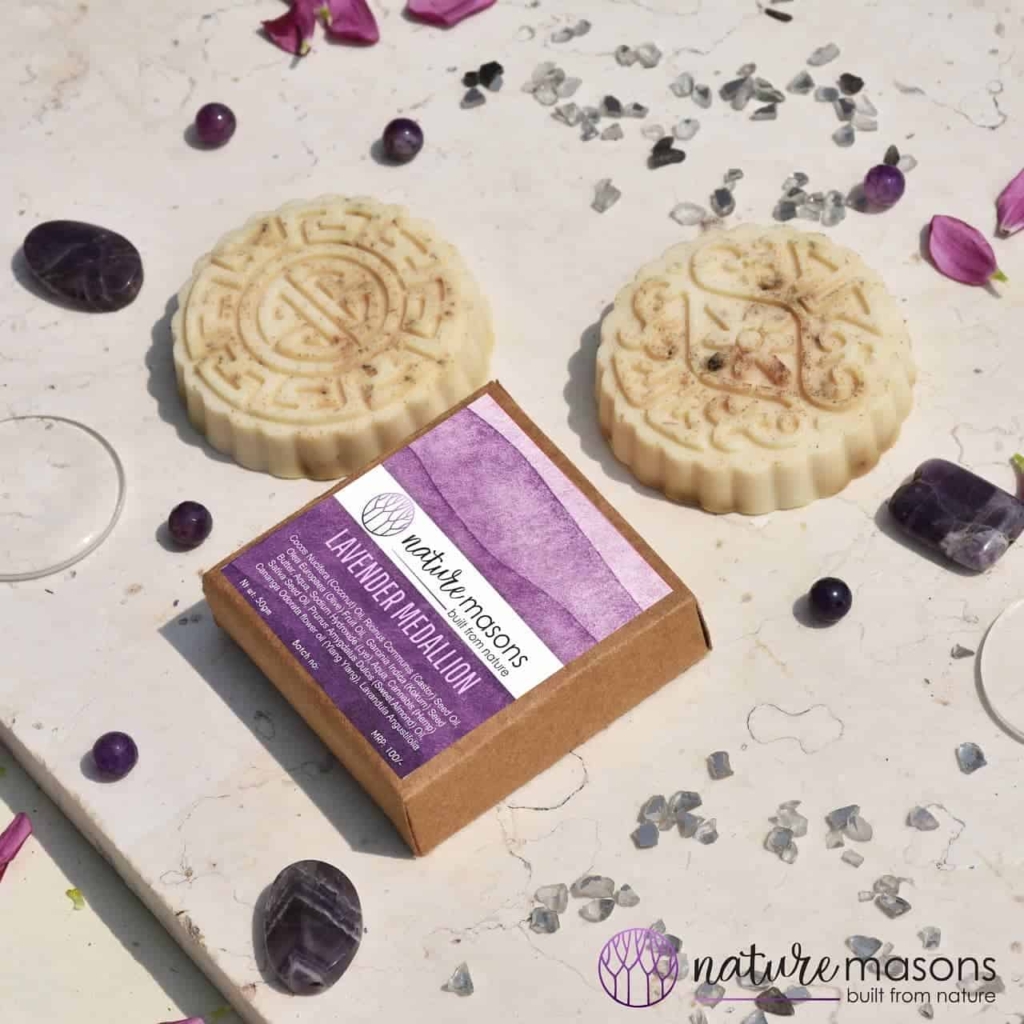
Zero waste beauty
Cosmetics and beauty products can be tricky when it comes to packaging. But some homegrown ones not only use natural, clean ingredients, they also offer zero-waste bars and return programs to keep their plastic footprint low.
Scentora
Scentora has everything from handmade and vegan perfume bars to conditioning shampoo bars and lip scrubs – shipped without plastic across India. The bars are plastic-free, while the glass jars can be returned for sterilizing and reuse.
Nature Masons
Nature Masons has a range of natural deodorant options to choose from, along with a tempting range of soap, shampoo and conditioner bars. Their aluminum containers can be returned for shopping credits – which are then passed on to a verified recycler.
Zero waste gifts
Wild Berry Organics
“Our biggest joy is to meet entrepreneurs from the environmentally conscious tribe, while introducing organic and eco-friendly brands to as many people as we can.”
The love for food and nature inspired Niharika to launch Wild berry Organics – an online, plastic-free store that specializes in green gifting. She personally curates tried and tested organic and sustainable brands, and works with up and coming entrepreneurs to receive products in bulk.
Innovative gifting options include seed calendars, upcycled badges and even kombucha. Fresh food and beverages are only delivered within Hyderabad – a good excuse to visit the city!
Other tips to shop low waste
Going low waste doesn’t mean that we have to clean out our entire kitchen or bathroom and make room for sustainable products!
The idea of the zero waste movement is to reduce what we throw out. That means using what we have for the longest time possible, then replacing it with a greener alternative.
Also read: 5 Easy Steps to Reduce Single Use Plastic – On Your Travels and in Everyday Life

If you’re like me and want to embrace the zero waste lifestyle, but don’t always have access to zero waste stores, here are a few easy steps to reduce your waste:
Shop at local farmers’ markets
Buying local, seasonal produce directly from farmers and small businesses is perhaps the easiest way to go zero waste. Many cities, from Mumbai to Dehradun, host weekly organic farmers’ markets – take your own bags and encourage farmers to sell without plastic packaging!
BYOB
Ever traveled with a reusable bottle? Or gone to the store with your own bags in tow? Then you already have a few zero waste habits under your belt.
1,60,000 plastic bags are used worldwide per second. On average, a plastic bag is used for just 12 minutes and then thrown away. By bringing our own cloth or jute bag while shopping, we can help prevent all that plastic from entering our oceans and landfills.
It’s also important to note that most zero waste stores pack purchases in paper bags. Although biodegradable, paper bags require four times more energy than plastic bags to manufacture – so must either be avoided or atleast reused.
Bulk up
Buying in bulk saves money – but it also reduces packaging waste. Five 1 kg packets of lentils for instance, generate sizably more waste than one 5 kg packet. Sounds small, but it adds up over the years.
Inspiring zero waste accounts on Instagram
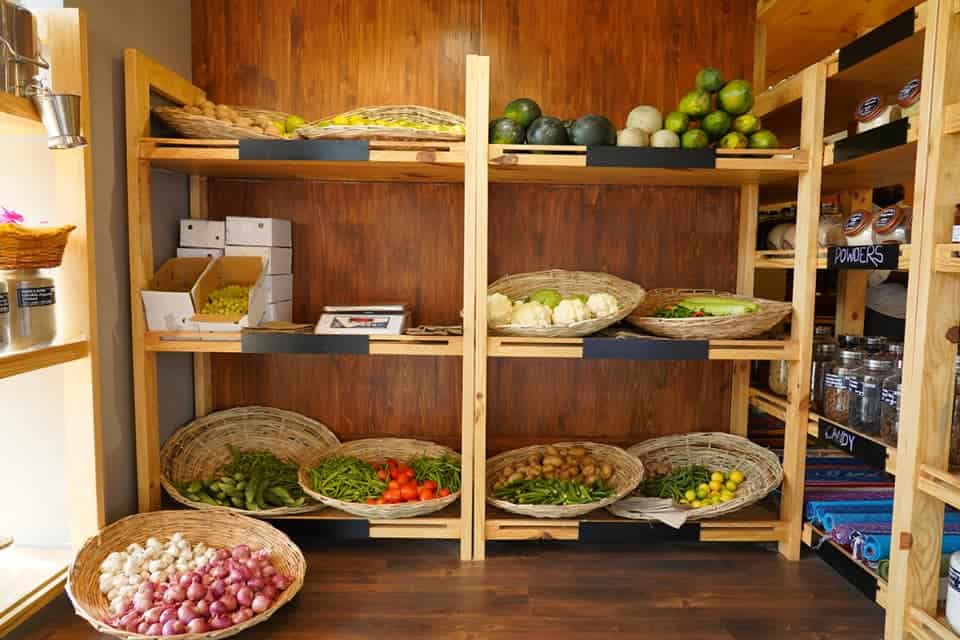
@zerowasteadda
Pankti is a zero waste practitioner and a slow fashion advocate. She shares easy zero waste swaps, composting tips and upcycling ideas.
@ullisu.official
Mrudula, the founder of the online zero waste store Ullisu, offers a realistic glimpse into the zero waste lifestyle, featuring trash-free snack ideas, homemade bio enzymes and other cool tips to reduce everyday waste. Her Map Project maps out bulk stores and plastic-free shops across India!
@conscious_chokri
Mehndi’s honest approach to low waste cooking, natural hair care and everyday zero waste dilemmas is inspiration to keep doing our bit, no matter the challenges.
@nayana_premnath
Eco youtuber Nayana shares DIY hacks for low impact living, low waste shopping and veganism. Her profile is proof that embracing the zero waste path doesn’t have to be expensive or complicated.
@_parth.bhasin
A climate change activist and zero waste enthusiast, Parth uses humor to create awareness. A pick me up whenever I feel down about my zero waste efforts!
Your questions about going zero waste in India
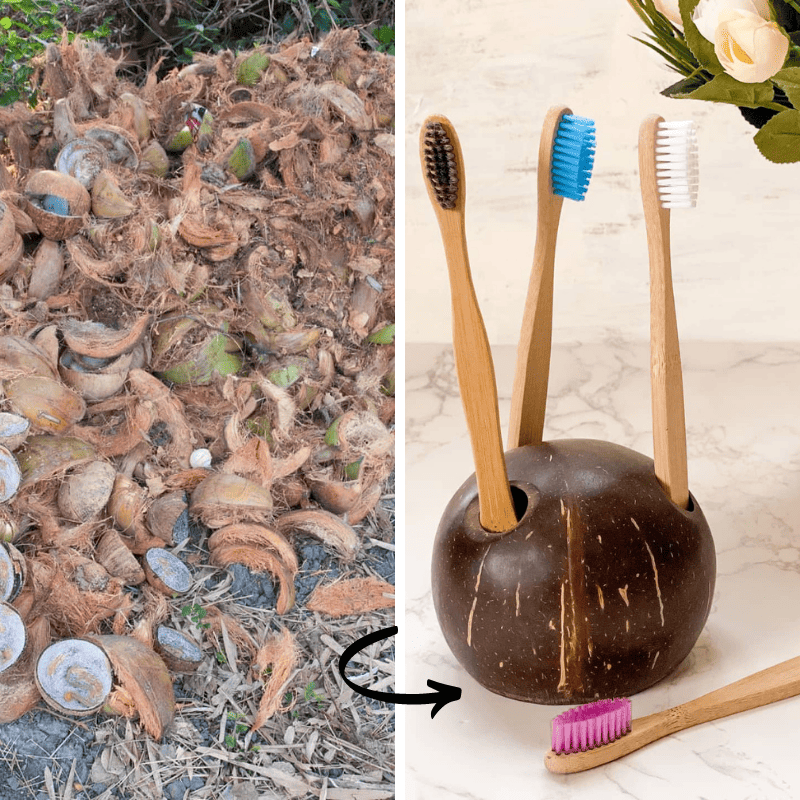
Do you have any zero waste beginner tips?
Take it slow.
Aiming to go low / zero waste at once can seem overwhelming, but we don’t have to change our lifestyle overnight. Start by making small changes like buying from online zero waste stores or carrying your own bags whenever you go shopping.
What are some easy zero waste swaps?
- Refuse plastic straws, use-and-throw utensils and plastic bags.
- Switch to a bamboo toothbrush and soap & shampoo bars.
- Try a menstrual cup or washable cloth pads.
- Carry reusable bags on a grocery run.
- Buy from zero waste stores instead of supermarkets.
- Follow Instagram accounts / join Facebook groups for zero waste inspiration in your city.
Is it possible to go zero waste on a budget?
Of course! The 5 Rs: Reuse, Reduce, Recycle, Repurpose and Rot can help you go zero waste with very little.
Reuse the things that you have. Yes, this means your plastic containers too.
Reduce what you buy – really think about your purchases and whether or not you need them.
Recycle your waste as much as possible – that can be done by returning it to those who sent it, sending it to a recycling plant or making ecobricks.
See if you can Repurpose the things that you’re throwing away. For example, old clothes can be turned into a throw pillow!
And compost (Rot) your organic waste from your kitchen.
Why is zero waste important?
It is estimated that India generates nearly 5.58 million tons (5500 billion kgs!) of single-use plastic in a year – made from fossil fuels and meant to be used only once!
We’re drowning in plastic, literally
A startling 91% of plastic produced thus far, has not been recycled. It either remains as litter around the country, releases harmful gases in landfills or lands up in the ocean.
Microplastics have been found on the shorelines of all continents (including Antarctica), spotted in the deepest trenches of our oceans, and even found in the rain!
Every time we choose plastic wrapped veggies, buy groceries in packaging material or accept a single-use plastic bag, we contribute to this crisis.
The ‘use and throw’ culture is hurting our health and our planet’s
Chances are, your grandmom saved and used everything for the longest time possible. But our generation, raised with plastic cutlery and disposable coffee cups, doesn’t think twice about disposing things after using them for just a few minutes.
Once dumped, these single-use plastic products take hundreds of years to disintegrate, often leaching into our groundwater, soil and oceans. Ultimately, they enter our bodies – and have even been found in the placenta of unborn babies!
It’s a way to save money!
If you’ve tried to shop sustainably or been to a zero waste store, you might be feeling a little perplexed right now. Aren’t zero waste alternatives more expensive? At first glance, it might seem so.
But any well-crafted zero waste alternative is made to be durable, so it can safely be reused multiple times. That means it will last much longer than its cheaper, disposable counterpart – and be more cost effective in the long run.
Doesn’t India already follow a zero waste culture?
The concept of zero waste living isn’t new to us Indians. From going to Sunday bazaars for groceries that had little to no packaging and DIY beauty routines that were passed down through generations, to water-conserving bucket baths, we’ve long lived zero waste.
But things have changed with the generations. With more disposable income, we’ve become less cautious of what we buy and throw.
Do you aspire to a zero waste lifestyle? Which are your favorite zero waste stores in India?
ALSO READ:
7 Sustainable Home Decor Brands to Furnish Your House or Bnb Creatively
About the guest author:

Aishwarya hopes to leave the world a little better than it is and spends her time working for causes that change lives. Both the human and animal kind. From teaching, writing and a little bit of design, she loves donning new hats when it comes to work. She hopes to expand her repertoire to pitch in her two cents to help our tiny blue dot as much as possible. Connect with her on Linkedin.


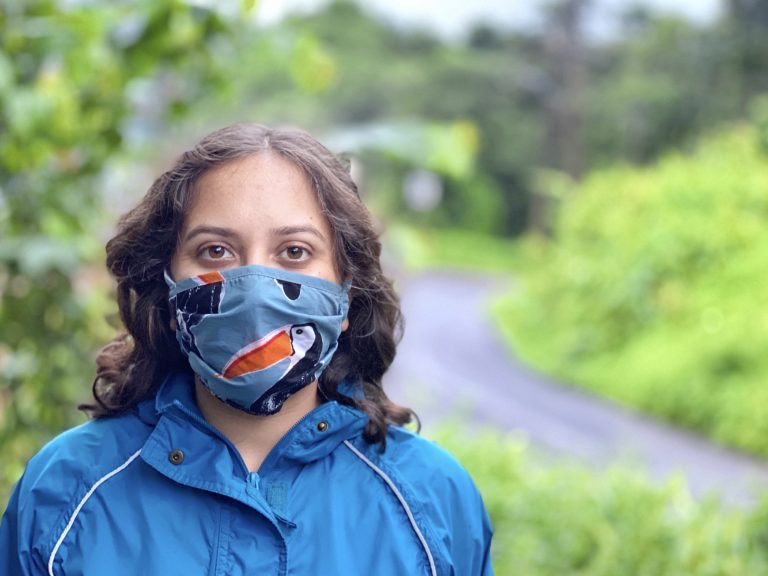

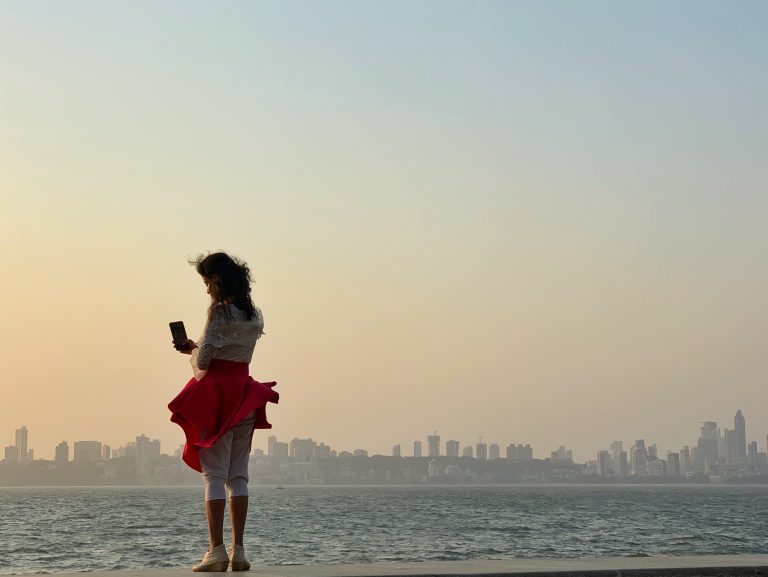



Wow! Thanks for putting together all these zero waste options! As someone who’s been struggling for years to find eco friendly options for every household necessity, and often doing without, this is heaven-sent!
So proud of all these startups and entrepreneurs who’re making a low-waste lifestyle more accessible! Which of these are you most looking forward to buying from?
What an incredibly well written post. Thank you.
An addition, Krishnaas organic store in Pondicherry is also zero waste.
Thanks for the suggestion, Manisha! We’re collecting all such suggestions and will add them to the list soon. Hope to keep growing it over the years <3
Great that India is making the change too. I remember my mother always shopped with a string bag and no one used tissues when I was growing up. Several years ago I began taking my own tiffin when I ordered take away food, but with covid, restaurants are refusing to use outside containers.
Isn’t it crazy that some restaurants / cafes are still refusing to take outside containers / cups despite all the research that suggests that that’s not how covid spreads? It’s bonkers.
And definitely, I remember our family getting sweet treats in cute earthen pots back in the day. Now it’s all single-use plastic and no one blinks in selling / buying it.
Thank you Shivya, for this most informative post. I am so glad that India is turning it’s attention to waste less plastic in any form. I remember on my first trip to India, when I arrived at 1am at the Delhi airport being picked up, as we drove the my destination, I pulled down the window of the car to breath India, and being shocked as wafting of burned plastic blew in. Men on the pedestrian huddled over a little fire to warm up their hands , burning plastic water bottles and bags. After that I had witnessed this quite a few times, as I understood that plastic had been their own fuel for warning themselves up, probably to the circumstances that they didn’t enough money to buy wood. I do hope that there will happen great changes in the near future. Greetingto you from the other side of the globe.
That’s such a sad sight to be welcomed into, Cornelia. I think it’s also a lack of awareness. A few years ago, we held a workshop for women in a self-help group in the remote Spiti Valley. They’ve all switched to storing liquids in single use plastic bottles as opposed to the durable steel, copper or earthen used earlier – and were shocked when we shared how single use plastic bottles tend to leach chemicals etc when overused and the menace of microplastics. I hope there’ll be great changes too – cautiously optimistic one has to be!
Hi Shivya, Oh it was an observation , I had many other wonderful signs to be welcomed in India. sorry for all the typos in my first comment. Thank you for sharing your workshop for women. You do such great work and for that and other things I admire you. Continue to enjoy what you are doing.
Great compilation for those looking for sustainable living
Hope that’s everyone out there, Arv 😉
This is so awesome! Hopefully more stores like this catch on.
That’s an incredible list of zero waste stores in India. So glad to know that people are doing their part towards the environment. Commendable!
Will look forward to the saying by Adrish Zero Waste, “We dream of a day when plastic-free items won’t be considered an alternative but the regular way to shop”. Hope this saying comes true and thanks for bringing this awareness among people towards saying no to plastic and going organic! Wonderful post!
BYOC (Bring Your Own Containers) should be the new norm and the way to future shopping! Kudos to people making constant choices and bringing in changes to sustain for the future. Great post!
https://www.schengenvisa.ae/
This article sheds light on the urgent need to address the issue of plastic waste and its impact on our environment. It’s high time we take action and find sustainable solutions that can help us make a positive impact on our planet